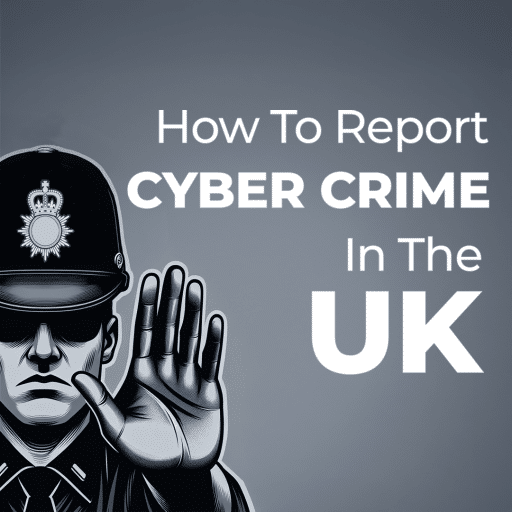You got caught in the trap. It could have been that you fell for the honeyed words of someone who messaged you on a dating app. Maybe it was the result of a clicking the link of an non-familiar email address. It could have even been the result of you accepting the friend request of someone you thought you knew. Regardless of how it started, after you shared or they gained access personal details or you’ve now become a victim of blackmail.
But what happens next? The issues don’t stop there. Your blackmailer is now threatening to expose you, intending to use the information you provided to ruin your life. They may demand money or further compromising images, leaving you feeling trapped and powerless. The fear of exposure can be overwhelming, making it difficult to think clearly about your next steps.
Should You Report Your Blackmailer to the Police?
The answer is always yes. You should file a report with your local police department and compile your statement. If your blackmailer is in the same state as you and sextortion is a crime in your state, the police should be able to take your information and initiate action against the local criminal helping you seek justice.
Will You Need to Involve the FBI?
While local police can assist if the blackmailer is within your state, they may not have the authority to address cases that cross state lines. If your blackmailer is located outside your state, the case may need to be reported to the FBI. However, if they are outside of the country, you may find that U.S. law enforcement has limited ability to help. There are exceptions, though; if the victim is a minor under the age of 18, the FBI handles such cases differently.
This is why different types of blackmail like sextortion has become such an issue. Most sextortionists are not based out of the continental United States. The vast majority online sextortion originates from points in Nigeria, The Ivory Coast, and The Philippines. These sextortion rings operate within small, sometimes interconnected groups. Usually with a manager or overseer running the operation, while several others work from scripts and fed responses as they communicate with their potential victims.
What Are the Types of Blackmail You Can Report to the Police?
Understanding the different forms of blackmail that can occur online is important in determining the right steps to take. Here are some common types of blackmail that involve sensitive information or sexual content:
- A threat to expose sensitive information where a blackmailer extorts a victim using the fear associated with the leak of financial details, private messages, or compromising photos. In these cases, the perpetrator is threatening to harm the victims’ reputation to make them comply with demands.
- A threat to release intimate images or videos of a victim to their friends, family members, or co-workers. Known as sextortion, this act of blackmail is solely focused on financial extortion.
- A similar threat to expose a victims nudes is sexploitation, the difference being that the blackmailer will use the threat of exposure to extort the victim for more sexual content or sexual favors.
- The final type we explore involves scammers posing as legitimate escort services to lure victims into different compromising situations, this could include paying for services that are never tendered or a threat of exposure or violence. These are known as escort scams.
Regardless of the category the act of blackmail falls under, it is always a good idea for victims to take the first step for stopping blackmail by contacting the police.
What Can Law Enforcement Do When Your Blackmailer is Outside the Country?
This scenario is increasingly common, as many cases of cyber blackmail involve criminals operating in other countries. They can infiltrate your life by gathering information about you, your family, and people in your community, creating a network they can use against you.
What the police can do is record your situation. This is still a helpful and protective measure, as it documents your experience. However, the police may not be able to prevent your blackmailer from using the information they’ve gathered against you.
Who Can Help?
In such cases, a digital forensics specialist can provide essential services. These professionals specialize in cyber crimes like blackmail and sextortion, working to help you go on the offensive. They aim not only to track down your blackmailer and seek criminal charges against them in their country of origin but also to ensure that they can’t use the information they stole to harm your reputation. Their goal is to ensure your blackmailer is forced to permanently delete any compromising content, preventing any further action against you.
If you find yourself facing sextortion, please contact our Blackmail Helpline, we have experts in cybercrime ready and available to guide you through how to regain control of your life.
How To Move Forward
All this said, if this is what the police can do about blackmail and sextortion online, what other options do you have? One of the first is to file a complaint with the FBI’s Internet Crimes Complaint Center (or, IC3 for short).
This is a secondary layer of insulation much like the police report. However, while the FBI may not act immediately on your case. Due to their size and caseload, they are at least positioned better with their relationships with Interpol. Leveraging the relationships they have with other national law enforcement agencies, Interpol helps expand the reach of the FBI. However, this option doesn’t often requires a large commitment of time.
There, however, many private companies and individuals who knows how to deal with sextortion. We certainly recommend doing your research on the topic.
We’ve had years of experience and have assisted with thousands of cases of online sextortion and blackmail in that time. Our success rate in dealing with these types of situations is over 90%.
Our ultimate goal is to receive hard proof of deletion.
If you faced with sextortion, give us a call. Our staff is available 24/7 to hear your case. Contact Our Blackmail Helpline Now. Don’t Hesitate. We’ve Helped Thousands
Sources:
- How To Report Online Child Exploitation: https://www.fbi.gov/how-we-can-help-you/parents-and-caregivers-protecting-your-kids/
DISCLAIMER: THIS POST IS FOR INFORMATIONAL PURPOSES ONLY AND IS NOT TO BE CONSIDERED LEGAL ADVICE ON ANY SUBJECT MATTER. DIGITAL FORENSICS CORP. IS NOT A LAWFIRM AND DOES NOT PROVIDE LEGAL ADVICE OR SERVICES. By viewing posts, the reader understands there is no attorney-client relationship, the post should not be used as a substitute for legal advice from a licensed professional attorney, and readers are urged to consult their own legal counsel on any specific legal questions concerning a specific situation.








